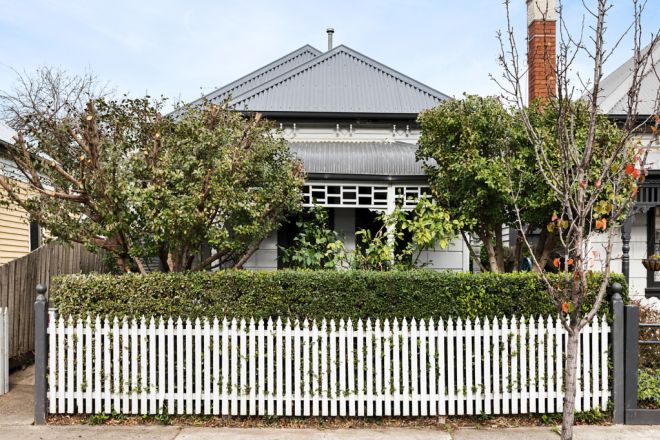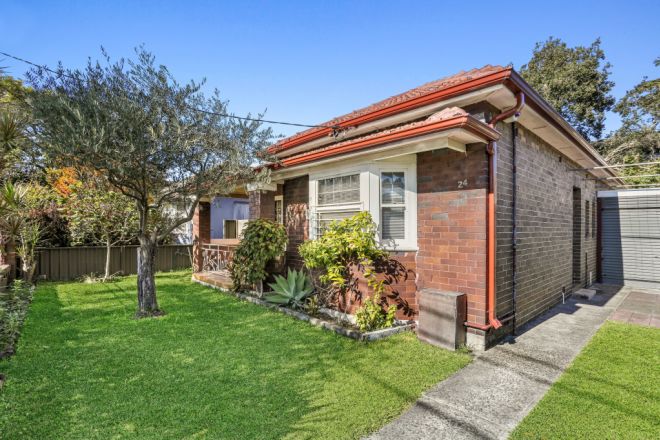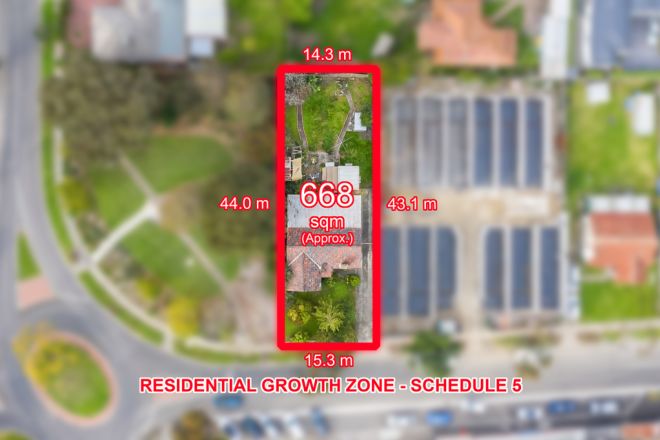Housing market FOMO has been replaced by FOMM - the Fear of Making a Mistake
The Fear Of Missing Out (FOMO) that drove the property market to record heights during the pandemic has now been wiped out by the Fear Of Making a Mistake (FOMM) which is currently paralysing both buyers and sellers, according to experts.
Anxious about the possibility of more interest rate hikes, worried by contradictory predictions on prices and nervous over the lack of supply, people are finding it hard to make momentous decisions about their homes.
“I think in the last four or five weeks, we’ve really gone from FOMO to FOMM,” said Welsey Bucello, an agent at Melbourne’s Nelson Alexander Brunswick.
“People want to move, but while we’re getting record numbers of potential buyers coming through our properties, we’re then seeing very few bidders on auction day.
“For instance, we recently had 150 people go through a three-bedroom house at 242 Albion Street in Brunswick, but then only two bidders turned up.

“The week after, we had 100 people go through another house at 19 Ford Street but then when we were made an offer pre-auction, we took it and ran, as people are just too scared at the moment to bid, so we thought we should.”
It’s a trend that’s now being seen throughout Australia. In Sydney, buyers’ agent Dan Sofo, the founder of Unicorn Buyers Agents, said that the segment of the market comprising inexperienced buyers and vendors, particularly, has been beset by raging FOMM.
Those buyers who are Baby Boomers and who have bought and sold in a number of markets in different cycles are more confident to act, but all others are being numbed into indecision.
“If you’re only buying your first or second house, or selling for the first or second time, we’re finding a lot of people are just bewildered at the moment by what’s happening in the market,” he said.
“There are so many contradictory signals in the media about interest rates, inflation and whether or not we’re sliding into a recession, and people are confused and wary.
“The buyers are saying, ‘What happens if I make a mistake and pay too much?’ The vendors are worrying that they won’t find anywhere else to buy when they sell their homes. So, we’re all doing a lot of appraisals at the moment, but people are just not acting on them.”
Research into long-term changes in the market has often, however, found that FOMM isn’t something that should stop people making critical decisions about their property futures.
Domain chief of research & economics Dr Nicola Powell conducted a study last year of house price cycles over the past 30 years in Australia’s combined capitals.
It found that house prices really don’t go through wild boom or bust phases; just periods of gains, often surging, followed by much smaller declines or flatlines.
“When property prices are falling, that can understandably make many Australians feel uncertain about their property journey,” Powell said.
“But it’s important to remember that property has historically moved through upswings and downturns, and there are lessons that can be learnt from previous price cycles.
“Our analysis of directly comparing the steepness and duration of an upswing and subsequent downturn since 1995 supports the argument that it is not timing the market that is important, it is the time spent in the market that counts.”
Rises in the past have been as high as 32.7 per cent from trough to peak, the research showed, she said, while price declines have tended to be around 3 per cent from peak to trough.
Price up and downs are normal, which should give new buyers and sellers confidence to act; property is a long-term investment so short-term blips shouldn’t worry them.

Sofo agrees, saying they should take the lead of the more experienced in the market, who are currently still active. Yet it’s difficult to know how long this outbreak of FOMM will slow down the market.
Property expert Scott Aggett of property negotiators Hello Haus says it can be tough when both buyers and sellers are afflicted by FOMM and are sitting on the fence for long periods.
Sellers are not listing their properties, even though stock on market is well down on the five-year average because, while they’re ready to move for a change of job or lifestyle, they can’t find anywhere they want to move to.

“Hopefully that will loosen up as we move towards spring and more property comes onto the market,” Aggett said.
“But the buyers are a real challenge. They’re sitting back as they’re not sure how much to pay. While prices are recovering generally, affordability is still low and interest rates might still rise, and borrowing capacity is shrinking.
“So, they’re scared of committing and putting in too much money. They’re like deer in the headlights. But the more experienced buyers are coming in and investors are returning with more confidence, and they’re the ones keeping the market turning over, and showing how it can be done.”
First National Real Estate chief executive Ray Ellis believes another factor contributing to FOMM is the number of building companies going under, and publicity over troubled new apartments.

The lack of foreign buyers is also making it harder for developers to get the go-ahead from banks for their projects, which adds to the uncertainty, while the banks of mum and dad are drying up as the cost of living heads upwards.
“These factors all get into people’s psyches and affects them,” Ellis said. “But people should try to break the cycle by looking at new opportunities.
“Fixer-uppers, so long out of vogue, may be an affordable way to get into the market now while new areas are opening up, like The Gables in Sydney’s Hills district and are offering affordable homes. People have to search for the opportunities, but they are there if they can have the confidence to try.”

We thought you might like
States
Capital Cities
Capital Cities - Rentals
Popular Areas
Allhomes
More










